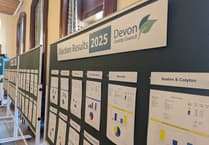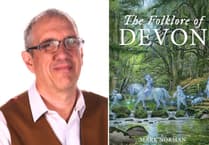THE December meeting of Crediton Probus Club was held at The Red Lion at Shobrooke when the President welcomed 20 members and two guests.
Apologies for absence were noted from a number of members who were unable to be present for a variety of reasons.
Members enjoyed a traditional Christmas lunch, with the usual trimmings, before Arthur Arscott introduced our speaker, Sue Bond from the Devon Family History Society (DFHS).
Sue started by saying that she was sure we all knew who we were but she suggested that most if not all of us had, probably, at some time wondered where we had come from and who our ancestors had been.
Sue explained that she worked in the research centre in Exeter where many people started digging to find or expand their family trees.
We were told that the relevant public records began to be centralised when the law was changed in 1837 when a major reorganisation of local government took place and the first national census was held in 1841.
Prior to that most information was contained in registers kept by the churches where baptisms, weddings and burials were recorded and researchers had to visit the relevant parishes to examine those registers, so far as they still existed and were legible.
This haphazard recording of information was considered insufficient and inefficient as life became more "complicated".
The National Censuses were introduced to facilitate the proper planning and provision of services that were being provided by Central and Local governments - the information collected in the censuses reduced the guesswork on the number of people living in an area and their ages and requirements for example.
Details were collected of the occupants and relationship of residents in each household and although the censuses were carried out once every 10 years they formed a better basis for planning.
Unsurprisingly, the information also made it easier for the authorities to decide how best to raise the sums necessary to provide the various services.
In times of war, call-up papers and coupons for food rationing and, in peacetime, the provision of housing, education, health facilities and roads/public transport all necessitate the availability of such information.
Sue emphasised that a lot of information is now publicly available on-line or in the various Records Offices but researchers should always try to check information against original records wherever possible.
Locally, we were recommended to look at: www.Devonfhs.org.uk .
As on other occasions, the variety and number of questions highlighted the interest shown by the members in this fascinating and enlightening talk.
A unanimous vote of thanks to the speaker was approved before the meeting closed with a toast "To the next time".
Richard Adams





Comments
This article has no comments yet. Be the first to leave a comment.